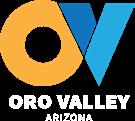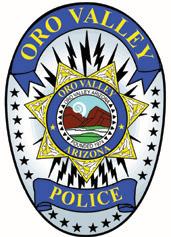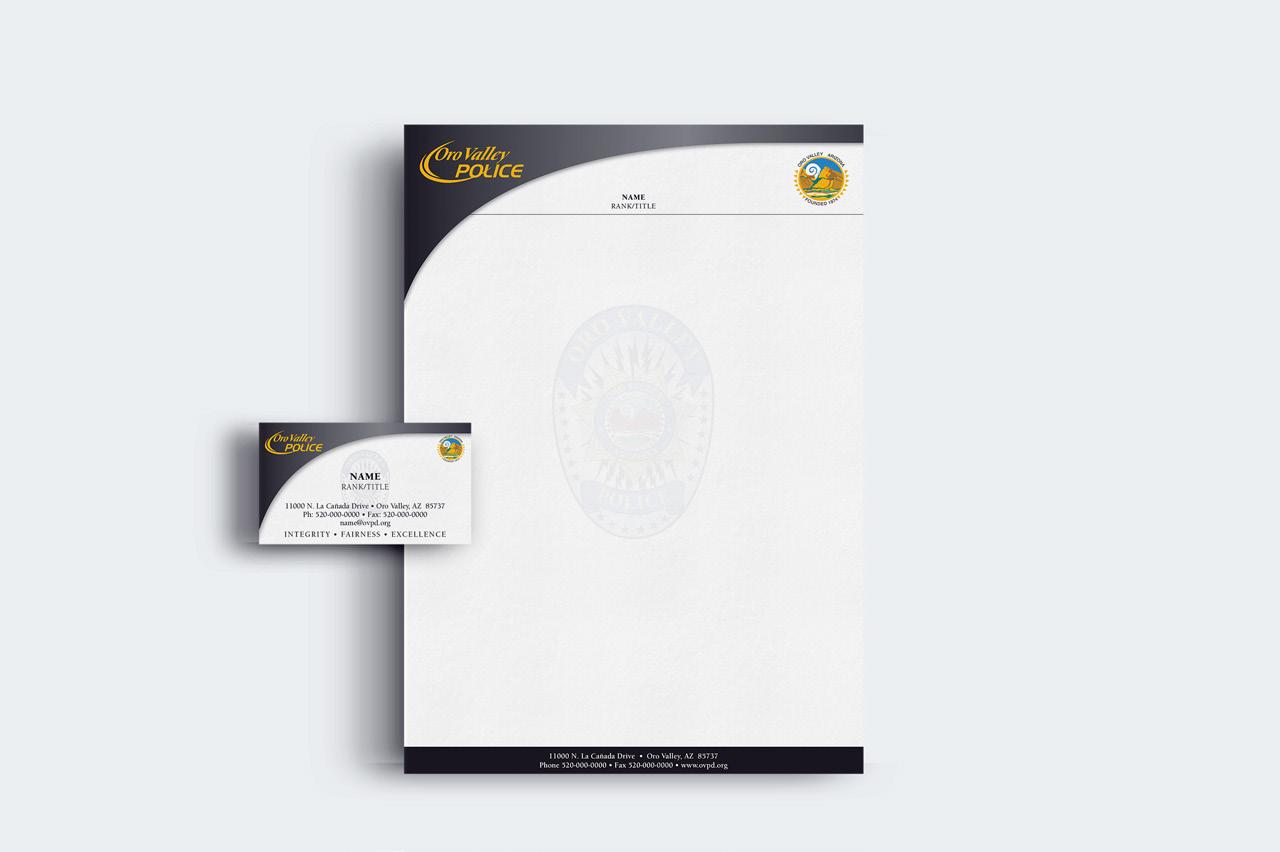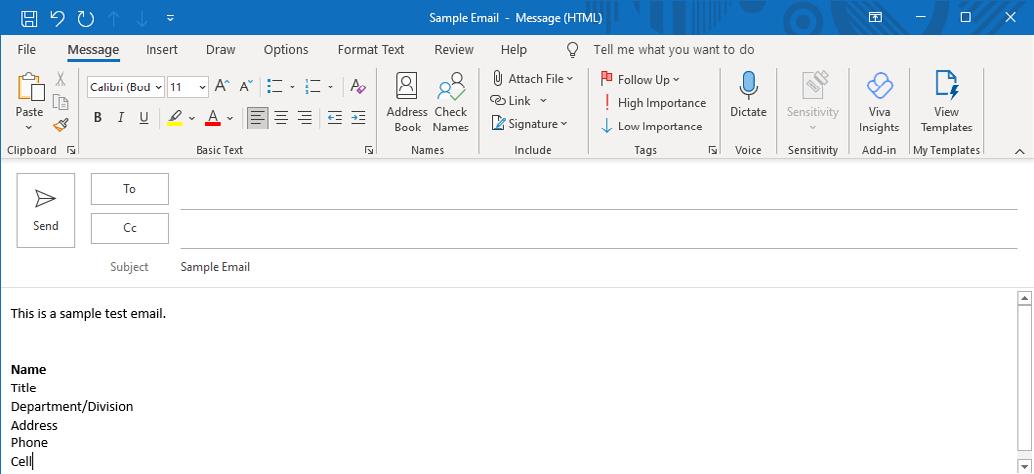HOW TO USE THE STYLE GUIDE
The Oro Valley Style Guide promotes consistency within printed publications. The Style Guide is based on rules and applications found in the Associated Press Stylebook, which provides industry standard guidelines for grammar and citations in news writing.
dates
Always use Arabic figures without st, nd, rd or th. Capitalize the names of months in all uses. When a month is used with a specific date, abbreviate only Jan., Feb., Aug., Sept., Oct., Nov. and Dec. Spell out when using alone, or with a year alone. The meeting will be held April 18, 2023; His birthday is Nov. 23, 1994.
The meeting will be held March 21st.
See decades, months, years for additional clarification.
ENTRY WORDS ARE IN BOLD.
BLACK TEXT EXPLAINS USAGE.
EXAMPLES OF CORRECT USAGE ARE IN ITALICS AND BLUE FONT.
EXAMPLES OF INCORRECT USAGE ARE IN ITALICS AND RED FONT.
RELATED TOPICS ARE IN BOLD
USAGE
• Press releases
• Executive Report
• External reports
• Flyers
• Social media
Need help? Please contact the Communications & Marketing Division for assistance.
http://orovalleyaz.sharepoint.com
Section 9: Grammar & Punctuation 64 | Town of Oro Valley Style Guide
DOWNLOAD FILES Visit InsideOV and search ‘Oro Valley Style Guide’
addresses continued
Aabbreviations and acronyms
A few universally recognized abbreviations are required in some circumstances. Others are acceptable depending on context, but in general, avoid “alphabet soup.” Do not use abbreviations and acronyms that your reader would not quickly recognize.
1. BEFORE A NAME: Abbreviate certain titles when used before a full name: Dr., Gov., Lt. Gov., Mr., Mrs., Rep., the Rev., Sen., and certain military designations.
2. AFTER A NAME: Abbreviate junior and senior after an individual’s name. Abbreviate company (Co.), corporation (Corp.), incorporated (Inc.) and limited (Ltd.) when used after the name of a corporate entity.
3. Use an acronym in parenthesis after spelling the name out in its entirety in its first occurrence. Then you may use the acronym thereafter. Do not use an acronym if the name occurs only once in a document. Example: The Oro Valley Police Department (OVPD) arrested a suspect this morning who is being charged with shoplifting. OVPD is not commenting on the case, as it is still ongoing.
accept vs. except
Accept means to receive; except means to exclude.
addresses
Use the abbreviations Ave., Blvd. and St. only with a numbered address (13880 N. Rancho Vistoso Blvd.)
1. Spell out abbreviations (Avenue, Boulevard and Street) and capitalize them when they are part of a formal street name without a number (Rancho Vistoso Boulevard)
2. Lowercase and spell out addresses when
used alone or with more than one street name (Tangerine and Naranja Drive)
3. All similar words (alley, road, terrace, drive, etc.) are always spelled out
4. Always use figures for an address number (9 Morningside Circle)
5. Spell out and capitalize First through Ninth when used as street name; use figures for 10th and above (7 Fifth Ave., 100 21st St.)
6. Abbreviate compass points used to indicate directional ends of a street (222 E. 42nd St.). Do not abbreviate if the number is omitted (East 42nd Street)
ampersand (&)
Use the ampersand when it is part of a company’s formal name: Procter & Gamble. The ampersand should not be used elsewhere in place of and.
amount, number
Use amount for things that cannot be counted individually: the amount of courage it takes to climb Mount Everest . For things that can be counted individually, use number: the number of people at a meeting.
Similarly, use less than for things that can’t be counted, and fewer than for things that can.
annual
An event cannot be described as annual unless it has been held at least two successive years. Do not use the term first annual. Instead, note that sponsors plan to hold the event annually.
Section 9: Grammar & Punctuation Town of Oro Valley Style Guide | 65
assure, ensure, insure
Use assure to mean to make sure or give confidence: She assured us the statement was accurate. Use ensure to mean guarantee: Steps were taken to ensure accuracy Use insure for references to insurance: The policy insures his life.
citizen, resident, native, constituent
Bboard
Capitalize only when it is an integral part of a proper name. Do not capitalize when used alone on second reference.
For example:
Capitalize: The Design and Review Board will meet tomorrow.
Do not capitalize: The board will discuss the issue.
brand names
When they are used, capitalize them. When a company sponsors an event such as a tennis tournament, use the company’s name for the event in the first reference and the generic term in subsequent references: The Buick Women’s Open; the tournament .
A citizen is a person who has acquired the full civil rights of a nation either by birth or naturalization. Cities and states in the United States do not confer citizenship. To avoid confusion, use resident in referring to inhabitants of states, cities and towns: Oro Valley residents. The term native (lowercase) is a term denoting that an individual was born in a given location: Tucson native. A constituent is a person who allows another to act on their behalf, such as a person represented by an elected official. It can and should encompass all who are represented in a community including individuals, businesses, etc., and should not replace “residents” unless the reference is a larger body or the community as a whole.
city and town
Capitalize city or town if part of a proper name, an integral part of an official name, or a regularly used nickname: Town of Oro Valley, City of Tucson, New York City. When referring to Oro Valley by just “Town,” or “the Town,” capitalize the T. Lowercase in all other instantances: Jane drove all over town. Capitalize when part of a formal title before a name: Town Manager Jack Brown. Lowercase when not part of the formal title: city Health Commissioner Bonnie Williams.
comma
Ccancel, canceled, canceling, cancellation
chair, chairperson, chairman, chairwoman
In general, use terms such as chair or chairperson, unless the -man or -woman terms are specified by an organization. Capitalize as a formal title before a name: company Chair Henry Khan, committee Chairwoman Jane Smith. Do not capitalize as a casual, temporary position: chair Deb Jackson.
Chair is acceptable as a verb: She chaired the meeting; he chairs the committee.
Use commas to separate elements in a series, but do not put a comma before the conjunction in a simple series. If omission of commas create confusion or impacts clarity, keep them in the sentence.
Correct – The flag is red, white and blue
Incorrect – The flag is red, white, and blue.
Put a comma before the concluding conjunction in a series, however, if an integral element of the series requires a conjunction.
Correct – For breakfast we had orange juice, toast, and ham and eggs.
Section 9: Grammar & Punctuation 66 | Town of Oro Valley Style Guide
commissioner
Do not abbreviate. Capitalize when used as a former title.
committee
Do not abbreviate. Capitalize when part of a former name.
For example:
Capitalize – The Tucson - Pima County Bicycle Committee held a special session.
Lowercase – During the session, the committee discussed pay raises.
company names
If you are in doubt about a formal name, consult the company’s website. Generally, follow the spelling and capitalization preferred by the company.
contractions
Contractions reflect informal speech and writing. Avoid excessive use of contractions. A number of contractions are listed in Webster’s New World Dictionary: aren’t for are not, for example. Avoid excessive use of contractions. Contractions listed in the dictionary are acceptable in informal contexts.
councilmember
When using councilmember, it should be one word. Capitalize when it is used before a name, lowercase in other uses.
For example:
Capitalize – Councilmember John Smith will attend the meeting.
Lowercase – The councilmember sat at the table.
court names
Capitalize the full proper names of courts at all levels. In Oro Valley, the proper name is the Oro Valley Town Court .
Ddates
Always use Arabic figures without st, nd, rd or th. Capitalize the names of months in all uses. When a month is used with a specific date, abbreviate only Jan., Feb., Aug., Sept., Oct., Nov. and Dec. Spell out when using alone, or with a year alone.
Correct: The meeting will be held April 18, 2023; His birthday is Nov. 23, 1994.
See decades, months, years for additional clarification.
days of the week
Capitalize them. Do not abbreviate except when needed in table format, usually used in a spreadsheet: Sun, Mon, Tue, Wed, Thu, Fri, Sat.
decades
Use numbers to indicate decades of history. Use an apostrophe to indicate numerals that are left out; show plural by adding the letter s.
Correct - the 1890s, the ‘90s, the mid-1930s
Incorrect - the 1890’s, the ‘90’s, the mid-1930’s.
department
Capitalize when referring to a specific department: The Finance Department .
1. Lowercase department whenever it stands alone: The department called and left a voicemail.
2. Althought it is preferred to not abbreviate department in any usage, be mindful of consistency.
3. Lowercase departments when referring to two or more, but capitalize the specific departments: The Finance and Human Resources departments
Section 9: Grammar & Punctuation Town of Oro Valley Style Guide | 67
directions and regions
In general, lowercase north, south, northeast, northern, etc. when they indicate compass direction. Capitalize these words when they designate regions.
For example:
Compass directions - He drove west, since the storm is moving east .
Regions - High temperatures will prevail throughout the Western states.
division
Capitalize when referring to a specific division: The Transit Services Division, the Division of Transit Services.
1. Lowercase division whenever it stands alone: The division is analyzing research.
2. Do not abbreviate division in any usage.
3. Lowercase divisions when referring to two or more, but capitalize the specific divisions: Transit Services and Operations divisions.
dollars
Always lowercase. Use figures and the $ sign in all except casual references or amounts without a figure: The book cost $4.
1. For amounts more than $1 million, use the $ sign and numerals up to two decimal places: It is worth $4.35 million.
2. Do not link numerals and the word with a hyphen.
Correct – He proposed a $300 billion budget. Incorrect – He proposed a $300-billion budget; She proposed a $300 billion-dollar budget.
3. Only use “.00” when necessary in tabular formats. Round up when appropriate.
See millions, billions and trillions for additional clarification.
drive-thru (n. and adj.)
Eeffect vs. affect
Effect, as a verb, means to cause: He will effect many changes in the company.
Effect, as a noun, means result: The effect was overwhelming.
Affect, as a verb, means to influence: Cold weather can affect Oro Valley gardens.
Affect, as a noun, is best avoided in everyday language.
either
Use it to mean one or the other, not both.
Correct – She said to use either door.
Incorrect – There are posters on either side of the door.
every one, everyone
Two words when it means each individual item: Every one of the clues was worthless. One word when used as a pronoun meaning all people: Everyone wants a happy life.
ex-
Use no hyphen for words that use ex- in the sense of out of: excommunicate, expropriate Hyphenate when using ex- in the sense of former: ex-convict Do not capitalize ex- when attached to a formal title before a name: ex-President Nixon.
Ffarther vs. further
Farther refers to a physical distance: He walked farther into the woods. Furthers refers to an extension of time or degree: She will look further into the topic.
Section 9: Grammar & Punctuation 68 | Town of Oro Valley Style Guide
federal
Use a capital letter for corporate or governmental bodies that use the word as part of their formal names: Federal Express, the Federal Trade Commission.
Lowercase when used to distinguish something from state, county, city, town or private entities: federal assistance, the federal government, a federal judge
fewer vs. less
In general, fewer refers to individual items: Fewer than five people applied for the position. Less refers to bulk or quantity: We paid less than $20 for office supplies.
first aid (n.) first-aid (adj.)
Hheadlines
Only the first word and proper nouns are capitalized. Exception: The first word after a colon is always uppercase in headlines.
Correct - Oro Valley releases survey results
Correct - Survey: Oro Valley ranked as top community
Incorrect - Oro Valley Releases Survey Results
holidays and holy days
Capitalize them (Groundhog Day, Easter, Hanukkah, etc.) The Town of Oro Valley observes the following holidays:
1. New Year’s Eve, New Year’s, New Year’s Day But lower case general references to the coming year: What will the new year bring?
2. Civil Rights Day
Ggovernmental bodies
1. Capitalize the full proper names of governmental agencies, departments and offices: The U.S. Department of State, the Oro Valley Town Council, the Oro Valley Police Department
2. Capitalize if the context makes the name of the nation, state, city, etc. unnecessary: The Town Council.
3. All words that are part of a proper name should be lowercase when they are used in the plural and do not refer to a specific body. The bill required city councils to provide matching funds.
government
Always lowercase and never abbreviate: The federal government, the state government.
graywater
Always one word and spelled with an “a”: The topic of the meeting was graywater harvesting.
3. Presidents Day Note – no apostrophe.
4. Memorial Day
5. Independence Day July Fourth or Fourth of July are also acceptable.
6. Labor Day
7. Veterans Day
8. Thanksgiving, Thanksgiving Day
9. Christmas, Christmas Day, Christmas Eve But, Christmastime is one word. Never abbreviate Christmas to Xmas or any other form.
Iinitials
Use periods and no space when an individual uses initials instead of a first name (J.P. Jones). Do not give a name with a single initial (J. Jones) unless it is the individual’s preference or a first name cannot be learned.
Section 9: Grammar & Punctuation Town of Oro Valley Style Guide | 69
midnight continued
J judge
Capitalize before a name when it is the formal title of an individual who presides in a court of law. Do not continue to use the title in second reference. Judge Harris made a ruling on the case Following the trial, the judge declined comment to the media.
L
legislative titles
Use Rep., Reps., Sen. and Sens. as formal titles before one or more names. Spell out and lowercase representative and senator in other uses.
1. When using councilmember, it should be one word. Councilmember John Smith will attend the meeting.
2. Spell out other legislative titles in all uses. Capitalize formal titles such as town councilor, chair, etc., when they are used before a name.
3. Do not use legislative titles before a name on second reference unless they are part of a direct quotation.
M manager
Capitalize when used as a formal title before a name: Town Manager John Johnson.
midnight
Midnight can prevent ambiguity for the time of day (12 a.m. or 12 p.m.). It is also
acceptable to use 11:59 p.m. Thursday or 12:01 a.m. Friday. Either can work for the sake of clarity. However, midnight is prefered over exact times to avoid confusion.
miles per gallon
The abbreviation mpg is acceptable in all references when paired with a figure: The car got 40 mpg. But write it out in general uses: “My car gets a lot of miles per gallon,” he said.
miles per hour
The abbreviation mph is acceptable in all references. No hyphen when used with a figure: He drove 60 mph.
millions, billions, trillions
Use figures with million, billion or trillion: The government ran a deficit of more than $7 billion, the deal was worth $1 million.
Do not go beyond two decimal places: 7.51 million people, $256 billion. Decimals are preferred where practical. A hyphen is not used to join the figures and the million or billion, even in this type of phrase: The president submitted a $300 billion budget .
See dollars for additional clarification.
months
Capitalize the names of months in all uses. When a month is used with a specific date, abbreviate only Jan., Feb., Aug., Sept., Oct., Nov. and Dec. Spell out when using alone, or with a year alone.
When a phrase lists only a month and a year, do not separate the year with commas. When a phrase refers to a month, day and year, set off the year with commas.
Correct - The new system started June 1999
Correct - She will start her job January 2, 2023
Incorrect - The project started November, 2021
Incorrect - The end date of the project is scheduled for July 18 2020
See dates for additional clarification.
Section 9: Grammar & Punctuation 70 | Town of Oro Valley Style Guide
movie, tv, book, song titles
Capitalize all words in a title except articles (a, an, the); prepositions of three of fewer letters (for, the, of, on, up, etc.); and conjunctions of three of fewer letters (and, but, for, or, so, yet, etc.) unless any of those start or end the title.
Put quotation marks around the movie/tv/ book/song title. Do not italicize.
“Raya and the Last Dragon”
“The Office”
“To Kill a Mockingbird”
“The Star-Spangled Banner”
Ooffice
Capitalize office when it is part of an agency’s formal name: Office of Management and Budget . Lowercase all other uses, including phrases such as: the office of the attorney general, the U.S. attorney’s office.
on
Do not use on before a date or day of the week when its absence would not lead to confusion, except at the beginning of a sentence.
Correct - On Monday, the committee will meet to discuss the issue.
Correct - The meeting will be held Monday. Incorrect - The meeting will be held on Monday.
Nnames
In general, use only last names on second reference. In general, call children 15 or younger by their first name on second reference. Use the last name, however, if the seriousness of the story calls for it, as in a murder case, for example.
nonresident
Nonresident is one word, not hyphenated: the fee for nonresidents is higher.
numbers
In general, spell out one through nine: She had nine months to go; I will sing three songs. Use figures for 10 or above: He baked 24 cookies; I need to send 11 invites. Also apply these rules for the ordinals first through ninth, 10th and so on. However, use 1st, 2nd, etc. when the sequence has been assigned in forming names: 1st Ward, 7th Fleet . If a sentence begins with a number, spell out the number: Seven people attended the public hearing about transit
over vs. more than
Over generally refers to spatial relationships: The plane flew over the city. Use more than when referring to numerals: More than 100 people attended the meeting.
percent
1. Use the % sign when paired with a number, with no space, in most cases: Average hourly pay rose 3.1% from a year ago; about 60% of Oro Valley employees agree with the decision.
2. For amounts less than 1%, precede the decimal with a zero: The cost of living increased 0.6%.
3. In casual uses, use words rather than figures and numbers: She said he has a zero percent chance of winning.
Section 9: Grammar & Punctuation Town of Oro Valley Style Guide | 71
P
police department
In Oro Valley, the agency’s formal name is the Oro Valley Police Department, so Police Department should be capitalized with or without the name of the community. Lowercase in plural uses and lowercase the department whenever it stands alone: The Oro Valley and Marana police departments, the department held a meeting. Lowercase the police department when used as a generic term for any other police agency.
prefixes
Three rules are constant:
1. Use a hyphen if the prefix ends in a vowel and the word that follows begins with the same vowel: multi-index. Exceptions: cooperate, coordinate and double-e combinations such as preestablish.
2. Use a hyphen if the word that follows is capitalized: ex-President Jill Jamison
3. Use a hyphen to join doubled prefixes: subsubparagraph
stormwater
Should always be one word; this is an industry norm. Uppercase when referring to the Town’s utility: the Town of Oro Valley Stormwater Utility. Lowercase when referred to in general terms: pollutants can be carried in stormwater runoff.
Spacing after punctuation
Use a single space after a period (or other punctuation) at the end of a sentence.
telephone numbers
Correct - 212-555-1500
If extension numbers are given: 212-5551500 ext. 123
Incorrect - (212) 555-1500
Incorrect - 212.555.1500
time of day
Qquotation marks
Punctuation goes inside quotation marks.
Correct - The Mayor asked, “What time did the meeting end?”
Incorrect - The Mayor asked, “What time did the meeting end”?
right-of-way, rights-of-way state
Lowercase in all state of constructions, unless referring to governmental body or agency like the Town of Oro Valley: the state of Arizona. Also, do not capitalize state when used to specify a level of jurisdictions: state Rep. Bob Jones, state funds.
Use figures except for noon and midnight. Avoid redundancies such as 10 a.m. this morning. Do not use unnecessary zeros. For example: 4 p.m. rather than 4:00 p.m. For time of day, a.m. or p.m. are always lowercase with periods. When a phrase has “from” before the time, use “to” instead of a dash.
Correct: The concert will run from 6 to 9 p.m.
Incorrect: The meeting will go from 7 - 8 p.m.
Other correct examples:
• When an event occurs in the morning: 9 – 11 a.m.
• When an event occurs in the afternoon/ evening: 2 – 4 p.m.
• When an event occurs mid-day: 10 a.m. – noon
See midnight for additional clarification.
Section 9: Grammar & Punctuation 72 | Town of Oro Valley Style Guide
titles
1. In general, capitalize formal titles used directly before an individual’s name. Lowercase when titles are used without a name or in constructions that set them off from a name by commas.
For example: Communications Administrator Benjamin Harwin was at the meeting. But: The communications administrator was at the meeting, or Benjamin Harwin, the communications administrator, was at the meeting.
2. For police rankings, Ofcr., Lt., Sgt., etc. always capitalize before the name and use first and last name on first reference: Ofcr. Jackson Payne, Sgt. Tom Smith, Lt. Jane Collins, Cmdr. Beth Allen, Dep. Chief Jake Stevens.
3. The following formal titles are capitalized and abbreviated as shown when used before a name both inside and outside quotations: Dr., Gov., Lt. Gov., Rep., Sen.: Sen. Abe Granley spoke at the event; “I agree with Gov. Julie Beck,” said Dr. Jim Carmen. All other formal titles are spelled out in all uses.
4. When organization and company titles are used, capitalize them. Abbreviate company (Co.), corporation (Corp.), incorporated (Inc.) and limited (Ltd.) when used after the name of a corporate entity. Do not follow an organization’s full name with an abbreviation or acronym set off by parentheses. If an abbreviation would not be clear on second reference without this construction, do not use it.
town council, city council
1. Capitalize when part of a proper name: the Oro Valley Town Council.
2. Capitalize if you are referring to a specific council, but the context does not require the city or town name: the Town Council.
3. Capitalize the Council when you are referring specifically to the Oro Valley Town Council.
4. Lowercase in other uses: the Oro Valley and Marana town councils, a city council. See city and town for additional clarification.
town hall, city hall
Follow the same rules as with city, town council.
1. Capitalize with the name of the city or without if the reference is specific: Oro Valley Town Hall, Town Hall.
2. Lowercase plural uses: Oro Valley and Marana town halls.
3. Lowercase generic uses: Call your local city hall
See city and town for additional clarification.
Yyears
When a phrase refers to a month and day within the current year, do not include the year: The target date is June 26 If the reference is to a past or future year, include the year and set it off with commas: June 26, 2027, is the target date.
See also decades, dates, months for additional clarification.
Section 9: Grammar & Punctuation Town of Oro Valley Style Guide | 73
For assistance with any of the standards in this manual please contact the Communications & Marketing Division.
Misti Nowak, mnowak@orovalleyaz.gov, ext. 4712
Communications & Marketing Administrator
Pia Zaverukha, pzaverukha@orovalleyaz.gov, ext. 4731
Communications & Marketing Specialist
Nick Going, ngoing@orovalleyaz.gov, ext. 4721
Digital Content Specialist
Lindsay Kerr, lkerr@orovalleyaz.gov, ext. 4772
Public Information Officer
74 | Town of Oro Valley Graphic Design Standards


































